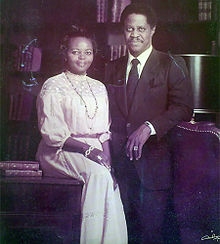As I watched Femi Fani-Kayode, and Akin Osuntokun swear by the name of Iyiola Omisore and PDP during a press briefing supervised by Musiliu Obanikoro, the minister of defence, to round-off PDP campaign for their candidate, in Osogbo last Thursday, the memories of yesterday brought the past to pain. It was like history repeating itself all over again. Their forebears, driven by passion for power employed similar tactics in the first republic. It only encouraged desperate federal government power mongers to impose a culture of impunity and a regime of injustice on the Yoruba people who by their culture always want the best for others as they want for themselves.
But it must be admitted from the onset that minus their politics, the Fani-Kayodes and the Osuntokuns, as leading light in education are a pride of the Yoruba race and a gift to Nigeria. Femi’s great grandfather Rev. Emmanuel Adedapo Kayode earned Master of Arts (Durham) degree from Fourah Bay College, an arm of Durham University in 1885. His grandfather, Victor Adedapo Kayode earned a law degree from Cambridge University in 1921, and his brilliant father Chief Remilekun Fani-Kayode, ‘born in London, bred in Lagos” (apology to Aiyekoto), like his illustrious father, earned a law degree coming on top of his class in Cambridge University in 1945. Femi the scion of an illustrious family is also a phenomenon. Born with a silver spoon in London, where he acquired all his education, he admitted feeling fulfilled for matching his father’s record in Cambridge.







